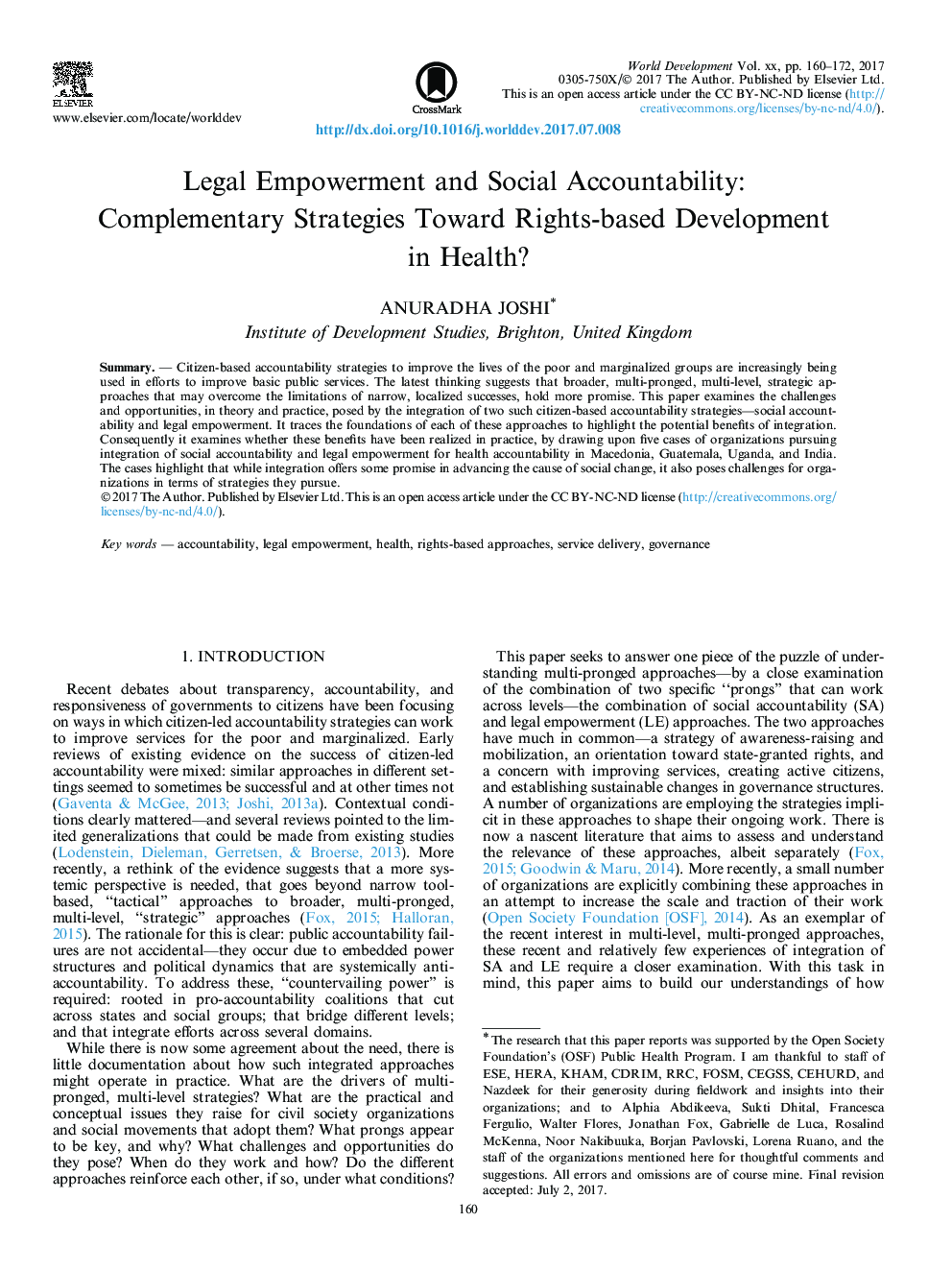| Article ID | Journal | Published Year | Pages | File Type |
|---|---|---|---|---|
| 5105097 | World Development | 2017 | 13 Pages |
Abstract
Citizen-based accountability strategies to improve the lives of the poor and marginalized groups are increasingly being used in efforts to improve basic public services. The latest thinking suggests that broader, multi-pronged, multi-level, strategic approaches that may overcome the limitations of narrow, localized successes, hold more promise. This paper examines the challenges and opportunities, in theory and practice, posed by the integration of two such citizen-based accountability strategies-social accountability and legal empowerment. It traces the foundations of each of these approaches to highlight the potential benefits of integration. Consequently it examines whether these benefits have been realized in practice, by drawing upon five cases of organizations pursuing integration of social accountability and legal empowerment for health accountability in Macedonia, Guatemala, Uganda, and India. The cases highlight that while integration offers some promise in advancing the cause of social change, it also poses challenges for organizations in terms of strategies they pursue.
Related Topics
Social Sciences and Humanities
Economics, Econometrics and Finance
Economics and Econometrics
Authors
Anuradha Joshi,
